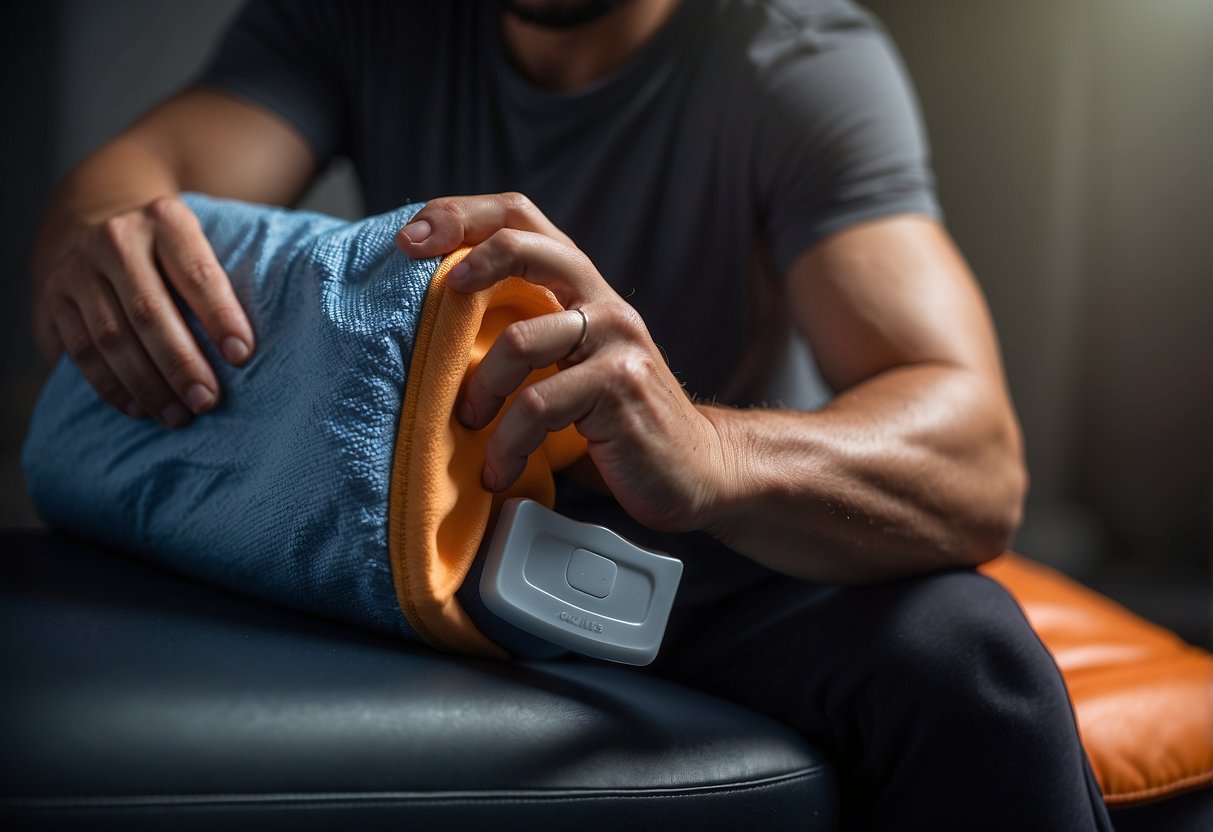Post-Workout Recovery: DIY Techniques for Quick Muscle Relief
Cold and Heat Therapy

Cold and heat therapy are essential techniques to alleviate muscle soreness, promote healing, and improve recovery post-workout. These methods can be used separately or in conjunction to maximize benefits.
Ice Bath Benefits
Cold therapy, particularly in the form of ice baths, can significantly reduce muscle inflammation and soreness. When muscles are subjected to intense exercise, tiny tears occur, leading to inflammation and discomfort.
Soaking in cold water constricts blood vessels, reducing swelling and numbing pain temporarily. Cold therapy also accelerates the removal of metabolic waste products, like lactic acid, from the muscles. This process helps reduce stiffness and enhance muscle function.
It’s recommended to limit ice baths to 10-15 minutes at a temperature between 50-59°F. Overexposure to cold water can have adverse effects, including skin damage and hypothermia.
Heat Application Techniques
Heat therapy is another effective method to soothe sore muscles and enhance recovery. Applying heat improves blood flow, bringing more oxygen and nutrients to the affected area. This can help accelerate the healing process by relaxing tight muscles and alleviating pain.
Some common heat application methods include hot packs, warm towels, and soaking in a hot bath. These should be applied for 15-20 minutes at a time. It’s crucial to monitor the temperature to prevent burns; the heat source should be warm, not overly hot.
Heat therapy is particularly beneficial for chronic muscle pain and stiffness. Combining heat with gentle stretching can further enhance flexibility and muscle recovery.
Rest and Sleep
Adequate rest and quality sleep play critical roles in muscle recovery and overall well-being. Both elements are essential for muscle repair and growth.
Importance of Sleep in Muscle Recovery
Sleep is vital for muscle recovery due to the release of growth hormones. These hormones repair and rebuild muscle tissue that is broken down during exercise. During deep sleep stages, the body undergoes protein synthesis, which is crucial for muscle growth and repair.
Lack of sleep can lead to increased levels of cortisol, a stress hormone that can break down muscle tissue. It is essential to get 7-9 hours of sleep per night to facilitate proper recovery and ensure optimal muscle repair. Consistent sleep patterns also contribute to sustained energy levels and better performance during workouts.
Optimizing Sleep Quality
Quality of sleep matters as much as quantity. To improve sleep quality, establish a regular sleep schedule by going to bed and waking up at the same time daily. Creating a calming pre-sleep routine, such as reading or taking a warm bath, can signal the body that it’s time to unwind.
The sleep environment should be dark, cool, and quiet. Investing in a comfortable mattress and pillows supports better sleep posture. Additionally, limiting caffeine and heavy meals before bedtime can prevent disruptions to sleep. Utilizing relaxation techniques like meditation or deep breathing can also aid in falling asleep quicker and achieving a deeper, more restorative sleep.
Supplementation for Recovery
Incorporating specific supplements into a post-workout routine can aid muscle repair and reduce inflammation. This helps athletes and fitness enthusiasts recover more efficiently and maintain peak performance.
Protein Supplements
Protein is essential for muscle repair and growth. Whey protein, derived from milk, is popular due to its high biological value and rapid absorption. It provides essential amino acids, particularly leucine, which stimulates muscle protein synthesis. Casein, another milk-derived protein, has a slower absorption rate, making it ideal for sustained muscle repair, especially overnight.
Plant-based options, such as pea, hemp, and brown rice proteins, are suitable for those with dairy allergies or vegans. These proteins also supply essential amino acids though they may lack one or more key amino acids in adequate quantities, thus it’s beneficial to combine different sources. Timing and quantity are crucial; consuming 20-30 grams of protein within 30 minutes post-workout is often recommended.



